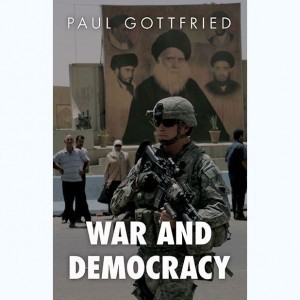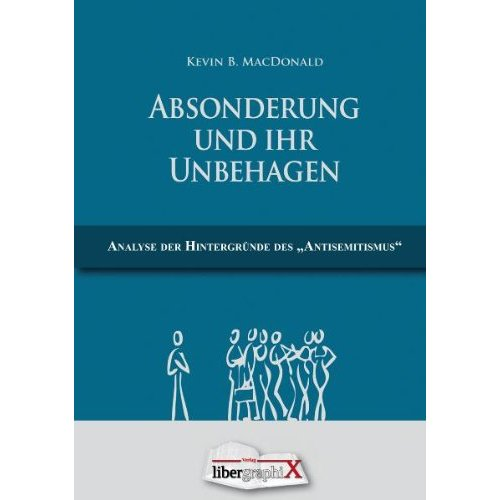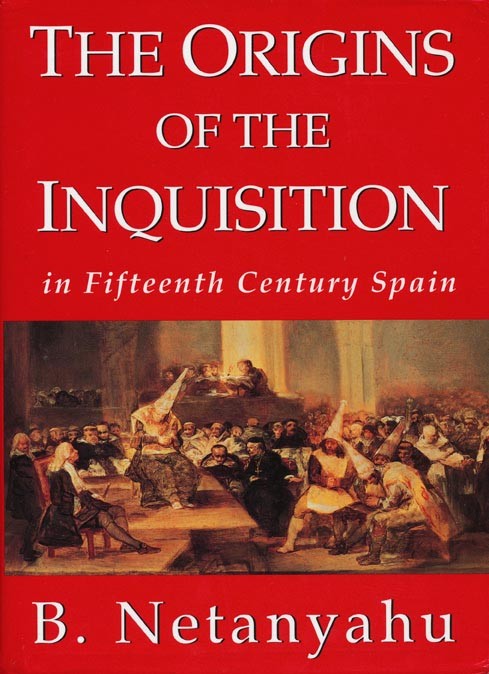Go to Part 1.
It’s interesting that the emphasis on Jewish identity and origins in the case of Spinoza is quite the opposite of that found among the intellectual movements discussed in The Culture of Critique, doubtless because the theories were promoted within a scientific framework in which ethnic interests and identifications would be seen as illegitimate.—
Although these theories were directed at achieving specific Jewish interests in the manipulation of culture, they “could not tell their name”; that is, they were forced to minimize any overt indication that Jewish group identity or Jewish group interests were involved. … Because of the need for invisibility, the theories and movements discussed here were forced to deemphasize Judaism as a social category—a form of crypsis discussed extensively in [Separation and Its Discontents] (Ch. 6) as a common Jewish technique in combating anti-Semitism. In the case of the Frankfurt School, “What strikes the current observer is the intensity with which many of the Institute’s members denied, and in some cases still deny, any meaning at all to their Jewish identities” (Jay 1973, 32). The originators and practitioners of these theories attempted to conceal their Jewish identities, as in the case of Freud, and to engage in massive self-deception, as appears to have been common among many Jewish political radicals. (Chapter 6, p. 239)
For Freud, this cultivated invisibility is exemplified by his keen desire to have non-Jews in psychoanalysis in order to obscure its evidently Jewish nature. But he also made little secret in his works (particularly Moses and Monotheism; see here, p. 111 ff) of his opinion that Judaism was superior to Christianity. In a similar sense, while Boas, Adorno, et al. were pushing a cultural/social/political agenda in scientific form, their Jewishness was not explicitly expressed. However, they strongly implied that Judaism was/is morally superior to Christianity/Western culture; Horkheimer and Adorno’s Dialectic of Enlightenment is a classic in that regard (see here, p. 159 ff). There is an implicit chauvinism here, with the only difference being that it was more explicitly and aggressively asserted in the case of Spinoza, Mahler and other subjects of recent efforts to perpetuate the notion of ‘Jewish Genius.’
Moreover, while Popkin, Israel et al. are keen to point out Spinoza’s Jewishness, they do not make much (or anything) of their own Jewishness; indeed, they would strenuously deny that their high opinion of Spinoza has anything to do with their own Jewishness, and they would be extremely uncomfortable with anyone pointing out that the movement to exaggerate Spinoza is an entirely Jewish one. I can only imagine how horrified Popkin was when Hubbeling pointed out that exaggeration was coming exclusively from Jewish sources.
Finally and more generally, it appears that Jews are becoming more and more flamboyant and confident (or aggressive) in asserting their dominance; the efforts of Popkin, Goldstein, and Israel should be seen in this context. While the ADL would like us not to think of Jewish power and influence at all, there are recurrent examples where Jews unabashedly assert their influence:
- Joel Stein’s op-ed on Jewish power in Hollywood;
- Lee Siegel’s triumphalism on Jewish displacement of WASPs as an elite;
- similar triumphalism on the victory of Jews over the WASPs by Robert Frank in his Wall Street Journal article, “That Bright, Dying Star, the American WASP”);
- Manny Freidman’s comment in The Times of Israel that “Jews own a whole freaking country” (including the media);
- this article in YNET about the extent of Jewish wealth;
- an academic book by a Jewish professor on the role of Jews in getting celebration of Christmas out of the public square;
- the predominant role of Jews and Jewish organizations in the gun control movement;
- sociologist Earl Raab’s well-known comment from 1993 that Jews have taken the lead in altering American immigration policy against the bias in favor of Northwestern Europe (see here, p. 246);
- comments by Jewish social scientists and journalists on the vast overrepresentation of Jews in financial contributions to federal elections (e.g., in the 1990s Seymour Martin Lipset and Earl Raab estimated that Jews provide 50% of the funding for the Democratic Party and J. J. Goldberg in his book Jewish Power estimated Jews contribute a third to a half of all money in federal elections);
- the widely acknowledged power of the Israel Lobby over U.S. foreign policy.
Jews see their future in a world where their claims of Jewish superiority are met with mere acceptance or apathy from the White population. This is neatly summed up in the 1979 ADL-sponsored book Anti-Semitism in America (by Harold Quinley and Charles Glock; New York: The Free Press). The authors state (p. 2) in relation to accusations that Jews are a moneyed elite that “a majority of Jews are in fact moneyed in the sense of having above-average incomes.” The writer added (p. 2) that 97% of American respondents to a survey on this fact said they weren’t bothered by it because they attributed it to individual merit, rather than seeing Jews as a group. This is precisely the goal sought by organizations like the ADL. The ADL’s enmity is aroused when, as Quinley and Glock put it (p. 3), discussion of such facts goes “beyond a simple recognition.”
Indeed, this perspective on Jewish accomplishment was clearly articulated by the Frankfurt School’s Theodor Adorno in his discussion of the “Genuine Liberal” in The Authoritarian Personality.
The epitome of psychological health for the authors of The Authoritarian Personality is the individualist who is completely detached from all ingroups, including his or her family. … For Adorno the most laudable type … is “The Genuine Liberal,” whose “views regarding minorities are guided by the idea of the individual” (p. 782). The exemplar of a genuine liberal discussed in the text … believes that anti-Semitism is due to jealousy because Jews are smarter. This person is quite willing to allow completely free competition between Jews and gentiles: “We don’t want any competition. If they [Jews] want it they should have it. I don’t know if they are more intelligent, but if they are they should have it” (p. 782).
According to Adorno, then, psychologically healthy gentiles are unconcerned about being outcompeted by Jews and declining in social status. (See here, p. 187)
In the wake of The Authoritarian Personality, intellectuals such as Richard Hofstadter analyzed illiberal thought as a psychopathological expression of “status anxiety” by people who were overly concerned about being eclipsed socially and economically (see above link, p. 195). Concerns about Jewish ascendancy emanate from diseased minds.
In other words: It’s permissible to recognize above-average Jewish wealth and Jewish over-representation in the media, politics, etc. But accept it. If you question it, discuss it, debate it—and most especially if you discuss how Jewish power conflicts with the interests of other groups, you’ll be labeled an extremist and an anti-Semite. Whites are simply expected to recognize this fact and then ignore it and its implications.
The fact that we now live in a ‘liquid’ society, in which bonds between Whites are less solid than at any time in history, has had the knock-on effect of inhibiting the ability of Whites to perceive group strategies in others. The ‘default’ setting of White attitudes to outgroups has thus been fundamentally altered. In 1950, a White student reading Israel’s books may well have been instantly suspicious that Israel’s opinion of Spinoza was strongly colored by his own background and origins.
Today, on the other hand, White students are much more likely to view the Jewish background of all these scholars as merely incidental. Jews have come a long way in achieving one of their oldest goals – the invisibility of their group status. This can only be described as a remarkable achievement given the visible prevalence of Jewish lobbies, intellectual movements, and activist groups. Despite increasingly vocal and visible assertions of Jewish influence and wealth, the majority of Whites are now seemingly incapable of moving “beyond a simple recognition” of these facts. Of course, one cannot make sense of atomized facts without a corresponding appreciation of their place in a bigger picture, in which underlying principles, patterns, and relationships contextualize and explain them. From their youth, however, modern Whites have been educated to believe that probing patterns and contexts in relation to Jewish influence is at best esoteric and the result of obsession, and at worst the result of pathology and murderous hatred.
Jewish confidence is also rooted in the belief of leading Jewish intellectuals that the changes wrought in society, by critical theory in particular, are permanent. In some cases, these intellectuals have given accounts of Jewish motivations and influence which are only thinly veiled. For example, Zygmunt Bauman writing on the impact of Marcuse, Horkheimer, Adorno and Fromm in his Liquid Modernity (Blackwell; New York, 2000; p. 22) crowed that: “What has been cut apart cannot be glued back together. Abandon all hope of totality, future as well as past. … Neither the rerooting of the uprooted nor the ‘awakening of the people’ to the unfulfilled task of liberation is on the cards.”
Bauman can barely contain his delight that a cohesive ‘solid’ world has passed away—a world in which he believes (p.26) “all those presumed not to be or found to be malleable enough were doomed to perish of exhaustion or sent to gas chambers and crematoria.” He writes (p. 3) that due to critical theory “the first solids to be melted away and the first sacreds to be profaned were traditional loyalties, customary rights and obligations.” This was followed (p. 6) by a ‘melting’ of “family, class and neighborhood.” In one section which obviously refers to the Jewish interest in ‘open borders,’ Bauman writes (p.13) that “We are witnessing the revenge of nomadism over the principle of territoriality and settlement. In the fluid stage of modernity, the settled majority is ruled by the nomadic and exterritorial elite. Keeping the roads free for nomadic traffic and phasing out the remaining check-points has now become the meta-purpose of politics … which as Clausewitz originally declared, are but ‘extension of war by other means.'”
The media has played its part in providing the foundations for White acceptance of Jewish assertions of dominance, with portrayals of smart Jews saving the world etc. (e.g., Edmund Connolly’s article on Independence Day, as well as positive portrayals of Jews and Judaism and portrayals of people who have anti-Jewish attitudes as deranged and mentally inferior (see here, p. 53ff).
Whites are increasingly inclined to unthinkingly accept this narrative. Contrast this with attitudes in the 1950s: Jews simply wouldn’t have be able to get away with it; they had a lot less confidence in publicly expressing their dominance. Although crypsis as a strategy has not disappeared entirely, it has changed substantially from the pre-1960s period. The change in our social context is key to understanding the upsurge in Jewish confidence in asserting their dominance.
To sum up, a Jewish chauvinism is present in all of these movements, with the difference in modern efforts being a subtle change in emphasis brought about by a radically different social context. Only in a modern world which has in large part accepted “tolerance” “pluralism” and “secularity”, and in which Whites are fed daily the image of “Jewish genius” can the Spinoza advanced by Israel et al. acquire anything approaching a hero status. To a homogenous society, Spinoza would have appeared deplorable — as he did in his own lifetime, to Jew and non-Jew alike.
The difference in strategy employed by Freud/Boas and Popkin/Israel really illustrates just how radically our world has changed.







